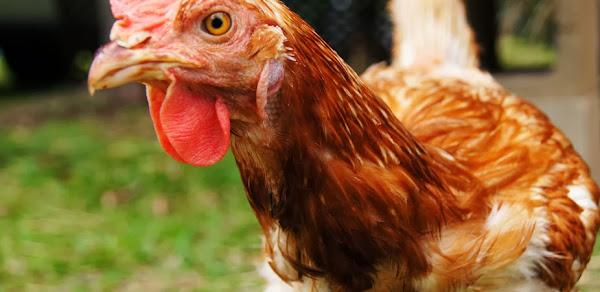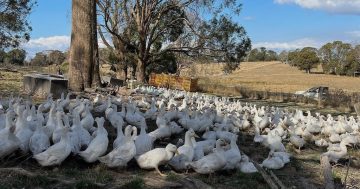
By Patrick Stokes, Deakin University
Today’s announcement that Woolworths will phase out the selling of cage eggs seems like pretty good news.
But let’s not get carried away.
The “free range” label on a carton of eggs can mean densities of anywhere up to 20,000 birds per hectare (as opposed to the recommended 1,500), and it’ll be five years before the phase-out is complete. Cage eggs have reportedly declined from 70% to 50% of egg sales since 2009, so the financial grenade Woolworths is selflessly throwing itself onto doesn’t look like it was all that explosive anyway.
Even so, on the face of it it’s a pleasing example of a company acting ethically. Not everyone is likely to be impressed though.
Just a few days earlier, Tom Joyner, writing for Fairfax, suggested that those who buy cage eggs have been unfairly stigmatised:
Seriously, though, apart from the obvious reasons of animal cruelty (unaided by confusing industry regulation), why is there so much stigma around buying cage eggs? They are a lot cheaper and I honestly find they taste little different to their free-range counterparts.
Sure, they’re cruel and all, but they’re so cheap! And just as tasty!
As I’ve pointed out here before, ethics simply doesn’t work like that: you can’t outweigh moral disvalue with any amount of nonmoral value. You don’t get to do something horrible just because it’s convenient, or fun.
Of course, consequentialists, such as utilitarians, might reply that the pleasure of saving money is itself a morally relevant factor. For a utilitarian (and I’m oversimplifying horribly here), we’re morally required to take the course of action that would produce the highest possible net pleasure.
But I’d be amazed if there’s a utilitarian argument that shows the pleasure of saving about 50 cents per 100g outweighs the suffering of cage hens.
The cost of eggs for lower-income earners might be a legitimate issue, but that doesn’t mean we face a stark either/or between protein-starved kids and hens who spend their whole lives wedged into a cage with the floorspace of an A4 sheet of paper.
Joyner goes on to ask:
Why should we so selectively expend moral capital championing a triviality of the poultry industry, when about 1100 deaths in a factory collapse in Dhaka (a disaster like others just waiting to happen) changes little in public discourse on our complicity in the exploitative measures employed by clothing manufacturers in developing countries – do we really care more about chickens than we do Bangladeshis? […] Australians would sooner bicker over the ethical implications of their omelet than they would demand greater transparency from major retailers.
The suffering of battery hens is certainly no “triviality”, but there’s a reasonable concern here. We do often direct our moral attention selectively and inconsistently. Perspective is important, and for beings like us with finite time and resources there may be a case for a sort of “outrage triage.”
But surely as consumers we can care about two things at once here? Conditions on poultry farms and in foreign clothing factories seems like a case where we can walk and chew gum at the same time (actually “fart and chew gum” in LBJ’s original phrase, but the bowlderised version seems to be the one that’s stuck).
It’s true, no doubt, that in our consumer behavior we consistently fail to do that – that our actions suggest we care more about where our eggs come from than where our clothes do – but doesn’t mean we get a free pass on caring about the hens too.
Joyner is hardly the only pundit to indulge in sloppy moral reasoning about nonhuman animals. At the height of the live export controversy last year, another Fairfax columnist, Nicole Flint, complained that in the ABC’s reporting, “Animals are segregated from their true purpose […] animals are food.”
There’s no further argument offered in support of that claim, so it seems Flint is doing one of two things. Either she takes it that it’s simply self-evident that animals exist for the purpose of us eating them, or she’s trying to answer a normative question (“Should we eat animals?”) with a descriptive fact (“We do eat animals!”). Replace “eating animals” with, say, “enslaving orphans” and you’ll see pretty quickly why that argument doesn’t work.
You might think this sort of philosophical analysis is overkill when we’re talking about ephemeral newspaper opinion pieces, piled atop the internet’s remorselessly growing mountain of content (Hey, I can see my house from up here!).
But as Plato has Socrates say in the Republic, “These are no small matters we are discussing, but how we are to live.” Moral reasoning matters, if anything does – and we’ve been doing it for long enough that we’ve gotten pretty good at it.
The problem with articles like Joyner’s and Flint’s isn’t that the positions they defend are wrong, necessarily. It’s that they treat moral reasoning as if we can simply make it up as we go along. They smuggle in controversial assumptions without argument, or reduce questions of ethical value to matters of personal taste. It might make for good clickbait, but it’s poor moral philosophy.
That doesn’t mean every columnist has to memorise Kant’s Groundwork to the Metaphysics of Morals before we let them near a keyboard. But as writers, as citizens, and simply as human beings concerned to live well, we need at least some basic familiarity with the concepts and methods of this vital form of philosophy. These are no small matters.
Patrick Stokes does not work for, consult to, own shares in or receive funding from any company or organisation that would benefit from this article, and has no relevant affiliations.
This article was originally published at The Conversation.
Read the original article.
[Photo: Flickr/Petarrr!]















